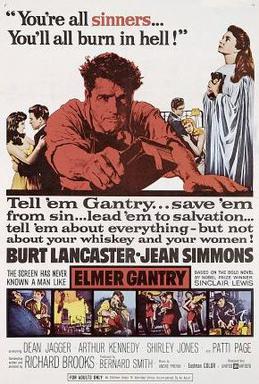
Re: “Latin scholar. . .”
From the Scribe:
There’s a sign at my bank, taped to the window next to the front door. It has words saying in effect, “When entering, please remove your hat and/or sunglasses,” etc.
So being a former lawyer, I do exactly that. “When entering,” I remove my hat. Then, once I get inside I put my hat back on. I do that because in law school I learned the maxim, expressio unius est exclusio alterius. That translates to “the expression of one thing is the exclusion of another.”
Among other things, this is called gaming the system, about which more later.
It also brings up the distinction between the letter of the law and the spirit of the law.
The spirit of the bank’s request seems pretty clear: Remove your hat and/or sunglasses, so in case you turn out to be a bank robber we’ll be able to have clear surveillance photos of your sorry “self” and will be able to send you to jail. On the other hand, by focusing exclusively on the letter of that bank-request, you can pretty much rob it of its intended effect.
(A BTW: That’s the whole theory behind this Blog. And just in case I’m being too subtle, let me spell it out. Those “fundamental” people who focus exclusively on the “letter” of the Bible – limiting it to a strict “literalism” – pretty much likewise rob it of its intended effect.)
That’s why the Apostle Paul said in Second Corinthians 3:6, that God “has made us competent to be ministers of a new covenant, not of the letter, but of the Spirit. For the letter kills, but the Spirit produces life.” (That’s the Holman Christian Standard Bible, emphasis added.)
That’s also arguably why Jesus Himself said, “For God is Spirit, so those who worship him must worship in spirit and in truth.” (The Living Bible, emphasis added.) In other words, these passages show that God does not want Good Christians to limit their reading, interpreting and living according to the Bible to a spirit-killing literalism. (A sentiment that can easily get you a busted nose in these parts, like the “scholar” portrayed above.)
So based on expressio unius, here’s how a sleazy lawyer and/or “literalist” would interpret the bank’s request. “If they wanted me to keep my hat and/or sunglasses off the whole time I was in the bank, they would have said so clearly and plainly. Instead they just told me to take off my hat and/or sunglasses ‘when entering.'” On the other hand, maybe the bank didn’t think it needed to either “waste the space” or spell out something that should be perfectly clear by a reasonable person using good old common sense.
Which brings up Gaming the system. Such a practice is also known as “gaming the rules, bending the rules, abusing the system, milking the system, playing the system, or working the system,” and can further be defined as using the rules and procedures “to manipulate the system for a desired outcome.”
See also, Wikipedia: Gaming the system, which notes, “Gaming the system means deliberately using Wikipedia policies and guidelines in bad faith to thwart the aims of Wikipedia.” That could easily be interpolated into, “Gaming the system includes deliberately using those policies and guidelines set out in the Bible, in bad faith, either to thwart the aims of the people and/or entities who took part in writing the Bible.”
Now I’m not saying that there aren’t many good Christians who take the Bible “literally,” but in a whole and entire “good faith.” I’m simply saying – again – that taking the Bible too literally can both rob it of its intended effect, and give rise to a temptation to manipulate the Bible for a desired outcome, as for example some “charismatic personality who infuses biblical passages and fervor into his pitches as a way to ease and collect money.”
Forewarned is forearmed. That’s all I’m saying (even though it may get me a busted nose.).

The upper image is “at: en.wikipedia.org/wiki/Classics,” with the caption: “Bust of Homer, the ancient Greek epic poet.” (Latin, Greek, whatever. . .)
See also Expressio unius est exclusio alterius legal definition of ….
The lower image is courtesy of Wikipedia, Elmer Gantry – Wikipedia, the free encyclopedia, and Elmer Gantry (film) – Wikipedia, the free encyclopedia:
On publication in 1927, Elmer Gantry created a public furor. The book was banned in Boston and other cities and denounced from pulpits across the USA. One cleric suggested that Lewis should be imprisoned for five years, and there were also threats of physical violence against the author. The famous evangelist Billy Sunday called [author Sinclair] Lewis “Satan‘s cohort.” [But] Elmer Gantry ranked as the number one fiction bestseller of 1927, according to “Publisher’s Weekly.”
See also, The lady doth protest too much, methinks – Wikipedia, referring to a line from Shakespeare’s play Hamlet, which line is “used as a figure of speech . . . to indicate that a person’s overly frequent or vehement attempts to convince others of something have ironically helped to convince others that the opposite is true, by making the person look insincere and defensive.”
And finally, see Forewarned is forearmed – Idioms and phrases, and Praemonitus praemunitus – Wikipedia, for our second Latin lesson for the day.